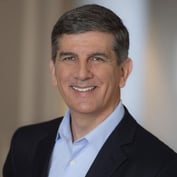(Bloomberg View) — Over the years, I have written and spoken positively about the fiduciary standard. Simply stated, a fiduciary is obligated to put the client’s interest first. Period. It is higher duty of care owed to clients than the traditional broker “suitability standard.” I’ll say more another time about why the new Department of Labor standards are the correct approach.
However, a recent development is so rich with irony that I could not wait to comment.
It is no surprise that the financial services industry not presently governed by the higher standard is against the new rules that the Department of Labor has proposed for making 401(k) and 403(b) advisers. It requires that all compensation-related retirement plan advisers must act as fiduciaries.
The reason for the opposition is simple: It potentially costs the industry a boatload of money. The change in standard requires the adviser to put the client’s interest ahead of even the adviser’s own pecuniary interests. That is a huge change.
The thinking behind the Labor rules is that retirement investment costs have slowly inched up, to the point where now they take a meaningful chunk out of people’s nest eggs. The SEC, despite a research report and staff recommendation that all advisers and brokers move to the fiduciary standard, has been politically unable to accomplish that goal.
Former SEC Chairman Arthur Levitt has called the lack of congressional support for the rule is a “national disgrace.” The White House Council of Economic Advisers estimates retirement savings with the fiduciary rule could be more than $200 billion over 10 years.
The Department of Labor gets to regulate 401(k)s because they are part of employees’ total compensation package. They do not have the same political process as the SEC, and perhaps most important to this aspect of regulation, they don’t have five political appointees of which a majority are required for any rule change. Hence, the Labor Department was able to do by fiat for 401(k)’s what the SEC could not do for the entire industry.
There is a lot of money involved. How much? As an example, let’s consider the lowly 12b-1 fee. It is a marketing fee paid to various agents to use their mutual funds. To grossly oversimplify this, think of it as a similar fee that food companies pay supermarkets for prime shelf space. Mutual fund companies pay brokers to carry these funds on their platforms.
To show you just how warped this corner of the industry is, 12b-1 fees can be as much as 0.25 percent of assets, and somehow “still call itself a no-load, or no-commission, fund” according to a Wall Street Journal discussion of fees; they are allowed to be as high as 1 percent.
That adds up. Morningstar crunched the numbers, and determined that for “the industry overall, the figure is from $12 billion to $15 billion. To give that some context, the total annual U.S. box-office receipts for domestic film sales are less than that at $10 billion; the National Basketball Associations total revenues – ticket sales, television broadcast rights, clothing, licensing deals, merchandise, etc., are only $7 billion.” This little fee that you probably did not know about is bigger than the NBA, bigger than Hollywood.








 October 02, 2015 at 09:53 AM
October 02, 2015 at 09:53 AM










